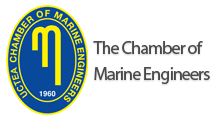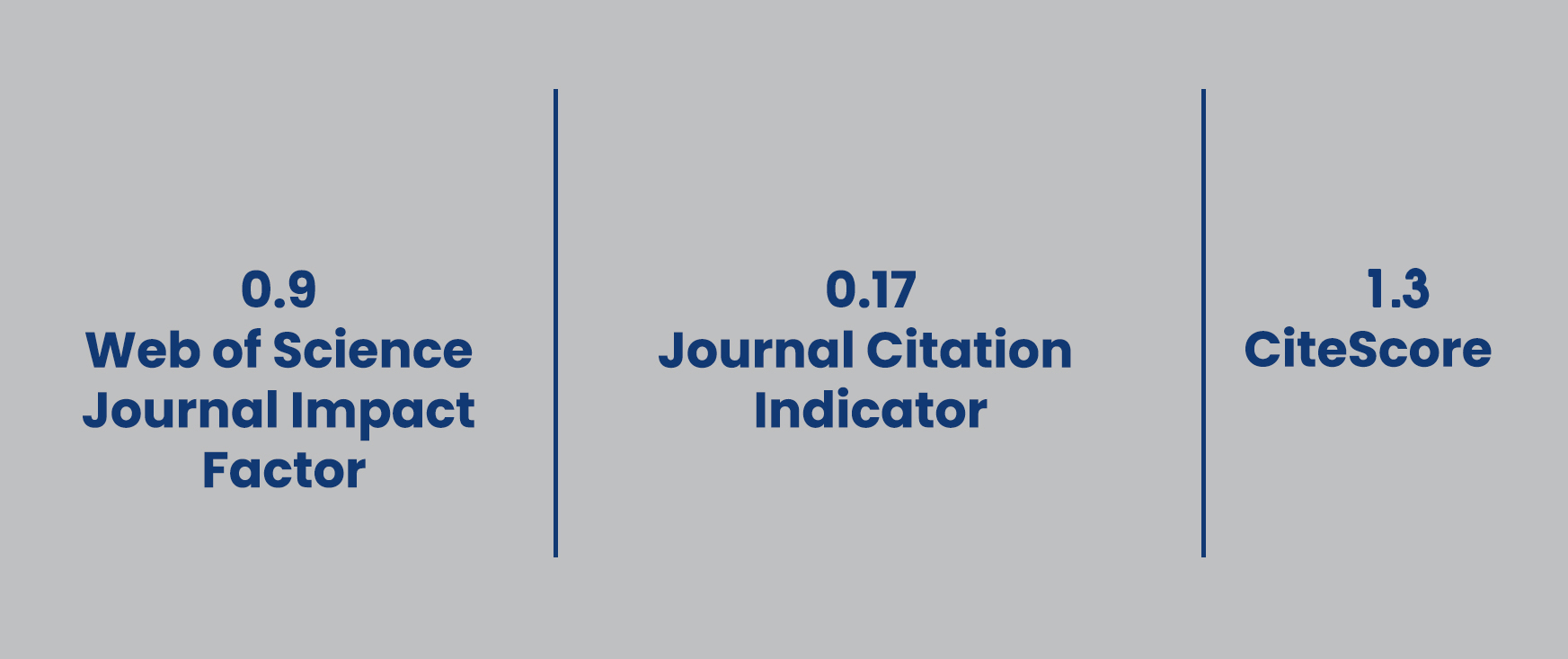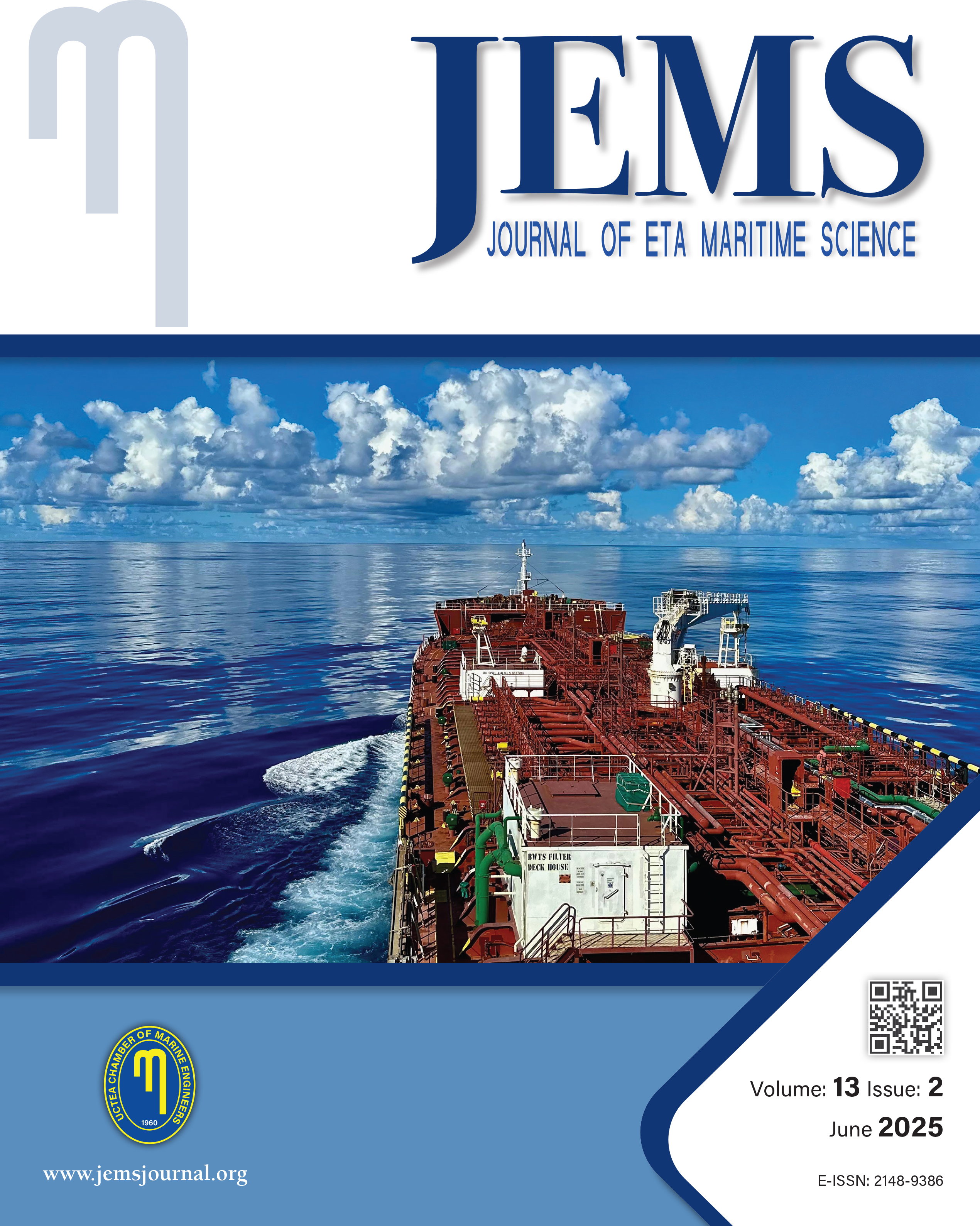

JEMS apply the Creative Commons Attribution NonCommercial 4.0 International Licence to all manuscripts to be published
ABSTRACTING & INDEXING
Volume: 11 Issue: 1 - 2023
| 1. | Full Issue Pages I - X |
| EDITORIAL (ED) | |
| 2. | Editorial Selçuk Nas doi: 10.4274/jems.2023.89664 Page 1 Abstract | |
| ORIGINAL RESEARCH (AR) | |
| 3. | Polygonal Type Fuzzy Ship Domain-Based Decision Support System for Collision Avoidance Route Planning Remzi Fışkın, Efendi Nasibov, Mehmet Oğuz Yardımcı doi: 10.4274/jems.2023.23245 Pages 2 - 13 This study presents a methodology for a decision support system based on a polygonal fuzzy ship domain, which takes into account the Convention on International Regulations for Preventing Collisions at Sea. A user interface has been created for the decision support function of collision avoidance (CA) at sea by designing a C# form application using the Microsoft Visual Studio platform. Numerical experiments and case scenarios have demonstrated that the proposed model can provide a reasonable and practical solution. Additionally, the results indicate that the developed model can accurately manage the CA action, and the planned CA trajectory can ensure safe navigation. This study is an excellent example of an algorithm structure that combines fuzzy logic and a deterministic approach. The developed methodology is anticipated to effectively guide vessel traffic services operators and navigators and contribute to ship automation, e-navigation strategy, and navigational safety at sea. |
| 4. | Modeling and Analysis of Container-Type Ships Marine Propeller for Engine Load Conditions İsmail Çiçek, Naz Yılmaz doi: 10.4274/jems.2023.81568 Pages 14 - 27 Engine room simulators have become increasingly important in practical marine engineering training and education. To ensure their usefulness in both training and academic studies, it is essential to accurately model, simulate, and validate ship propulsion systems within these simulators. This study outlines the design and development of a marine propeller and its hydrodynamic performance analysis using computational fluid dynamics (CFD). To obtain sampled ship and propulsion parameters, a large container-type vessel model in an existing engine room simulator was employed. This study includes the design and development of a new efficient propeller and its propulsion data, which can be used in the development of an engine room simulator. This study demonstrates a methodology for developing training simulators that involve using complex and extensive mathematical modeling. The ships geometry was designed using 3D modeling software such as Rhinoceros and Maxsurf. To determine the required thrust at each of the main engines loading modes, the ships resistance computations were conducted using Maxsurfs HullSpeed module. The authors also developed a MATLAB code to obtain the ships power requirements. The ship resistance and thrust requirements data were then used as input to design the propeller, and CFD analyses were conducted for the defined engine load conditions. The hydrodynamic performance coefficients of the newly designed propeller were computed, and the CFD results were compared with the existing propellers performance data. The resulting propulsion data presents the performance parameters for each predefined engine load condition. The analysis demonstrated that a more efficient marine propeller was designed, providing more thrust (up to 9% for a specific mode) while consuming less power compared with the existing one. |
| 5. | Sustainable Compensation Strategies for Ship Owners Liability for Occupational Injury and Death Costs Affecting Seafarers in Nigeria Theophilus Chinonyerem Nwokedi doi: 10.4274/jems.2023.03779 Pages 28 - 38 The study developed strategies for reserving funds for adequate and sustainable compensation of injury and death costs affecting seafarers in Nigeria. This study aims at quantifying the output losses resulting from occupational injury and death suffered by seafarers, as well as calculating the coefficients of the average rate of change of injury and death costs between 2006 and 2019 in Nigeria. The study utilized time series data from secondary sources. The Gross Output Method was used to assess the costs of occupational injury and death affecting seafarers for which ship owners are liable to provide compensation. The rate of change analysis was employed to estimate the coefficients of the average rate of change of injury and death costs. The results provided the basis for developing empirical relationships to ensure the reservation of sufficient funds by underwriters to sustainably compensate injury and death costs affecting seafarers in the Nigerian maritime industry. |
| 6. | No Wind is Favorable Unless the Sailor is Participative: Customer Participation in Marina Services Elif Koç, Durmuş Ali Deveci, Cansu Yıldırım doi: 10.4274/jems.2023.36034 Pages 39 - 55 Marinas are essential for tourism as a customized service, which, in turn, necessitates active customer cooperation. This study investigates the participation behavior of customers in marina service delivery and aims to determine the facilitating factors and consequences of customer participation (CP). A questionnaire survey was performed to evaluate the perception of marina users (i.e., boat owners or captains) who received service from full-service private marinas. The collected data were analyzed using the generalized linear model. The empirical results showed that customer self-efficacy and customer affective trust are significant facilitating factors, and actionable participation is the most essential dimension of CP substantially impacting customer cocreated value. Moreover, experience at sea and marina region are the factors with high control effects on the relationships between CP, self-efficacy, trust, and cocreated value. |
| 7. | An Application of Fuzzy AHP Using Quadratic Mean Method: Case Study of ENC Preparation Process for Intended Voyages Ahmet Lutfi Tunçel, Özcan Arslan, Emre Akyüz doi: 10.4274/jems.2023.05902 Pages 56 - 66 Effective management of the electronic nautical charts (ENCs) preparation process using the electronic chart display and information system (ECDIS) is crucial to ensure the safety of ships. Delays or failures in this process can prevent the creation of a safe voyage plan and result in delays or maritime accidents, which may damage a companys reputation. To identify risk factors causing such issues, the quadratic mean method-based Fuzzy Analytical Hierarchy Process was used to weigh and determine the most prominent ones. Additionally, the study proposes specific solutions to eliminate each risk factor. The studys outputs are expected to improve the management of ENC preparation, which is a frequent task for ships using electronic navigation. |










